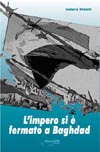The National, July 27, 2010
The thousands of US officer reports from Afghanistan appearing on Wikileaks yesterday show how technology can imperil a military’s secrecy and operations. But there is another side to that relationship. The technologies used by militaries to kill by remote control, which are becoming increasingly sophisticated and prevalent, are transforming warfare.
A senior United Nations official recently warned of the emergence of a "PlayStation mentality to killing", conjuring up an image of armies on the battlefield being replaced by unseen, nerdy teenagers spraying bullets and missiles with joysticks as wantonly as they already do when playing video games. Israel is one of the pioneers of these technologies. The first remote-controlled machines were surveillance aircraft built to fly over Lebanon in the early 1980s, as Israel invaded and then occupied the country for 20 years. Today Israel is the world leader in developing and selling unmanned aerial vehicles – or drones, as they have come to be called.
Israel’s disproportionate role in researching and developing this technology should not surprise us. Despite being a tiny country with a small population, Israel has had vast sums of military aid thrown at it by the United States. As a result, its regional ambitions have sometimes outstripped the human resources available to carry them out.
Israel has also had the benefit of more than four decades of ruling over the Palestinians, an occupied population on which to test the technology. Its latest piece of kit – called Spot and Shoot – involves joystick-controlling machine-guns mounted on towers around the Gaza’s perimeter fence.
For a highly militarised society, such developments have proved incredibly lucrative. The growing demands of the global homeland security industry are being met by small specialist Israeli companies, usually run by former generals, whose business is devising hardware to keep suspect groups and populations under surveillance and control. It only takes a small additional step to customise these machines to eliminate the suspects. Drones seem to fascinate and appal us in equal measure.
Most of us, however, instinctively recoil from the idea of killing by remote control. Why does it so offend our sensibilities? One suggestion is that it violates ancient codes of chivalry. Should the warrior not be forced to confront his opponent directly before dispatching him? In executing someone remotely, do we not strip them of the respect they deserve for fighting and dying in a different cause?
Such reasoning is overly romantic. Mortal combat has not been the norm in warfare since long before joysticks were invented. In fact, remote-control killing is just the latest stage in the evolution of waging war from afar that probably began with the bow and arrow, and has progressed through the gun, tank and warplane.
Remote killing does, however, justifiably arouse deep-seated fears about a future in which machines not only do the killing for us but decide who dies – or even turn against their makers. What limits should be placed on automation: should machines only carry out operators’ instructions, or should they be allowed a degree of independence? And in cases of mistakes, who is to be held accountable?
While valid, these concerns are largely hypothetical. Unmanned machines are – for the time being at least – still operated by humans. Is there really a moral difference between a drone operator firing a missile using a joystick and a pilot doing the same seated in a cockpit? It is not clear that there is.
A more significant ground for our revulsion is that automation makes killing cheaper. Shlomo Bron, a retired Israeli general and now a defence analyst, says the demand for remote-controlled machines is stoked by the large savings in defence costs. A drone operator can be trained in a day; a pilot may need years of expertise to fulfil the same mission.
It is this cheapening of life and death – financially, politically and socially – that ultimately appals us, because it makes state-sponsored killing easier and therefore far more likely.
What is to deter our rulers from waging wars if few, or no, practical costs accrue? Typically, fighting comes to an end only when the price – in treasure, blood or domestic political damage – becomes too high to bear. Remote killing could be a prescription for endless wars.
Nowhere has the danger become more apparent than in Gaza, where not only has Israel imprisoned the Palestinians behind walls but is starting to create an infrastructure of automated armed guards. Gaza’s skies are filled with drones, its coast is patrolled by remotely-controlled boats, and its walls topped by unmanned machine guns.
But why must these systems be operated by relatively expensive Israeli conscripts? Why not farm out the job to workers in the equivalent of a call centres in other countries, as has occurred with so many services in our globalised economies?
It sounds like a scene from a dystopian horror film, but it may not end there. If governments lose authority and legitimacy, may they not one day consider turning those remotely controlled guns and missiles on their people too?
Jonathan Cook is The National’s correspondent in Nazareth. He is the author of Disappearing Palestine
|

















